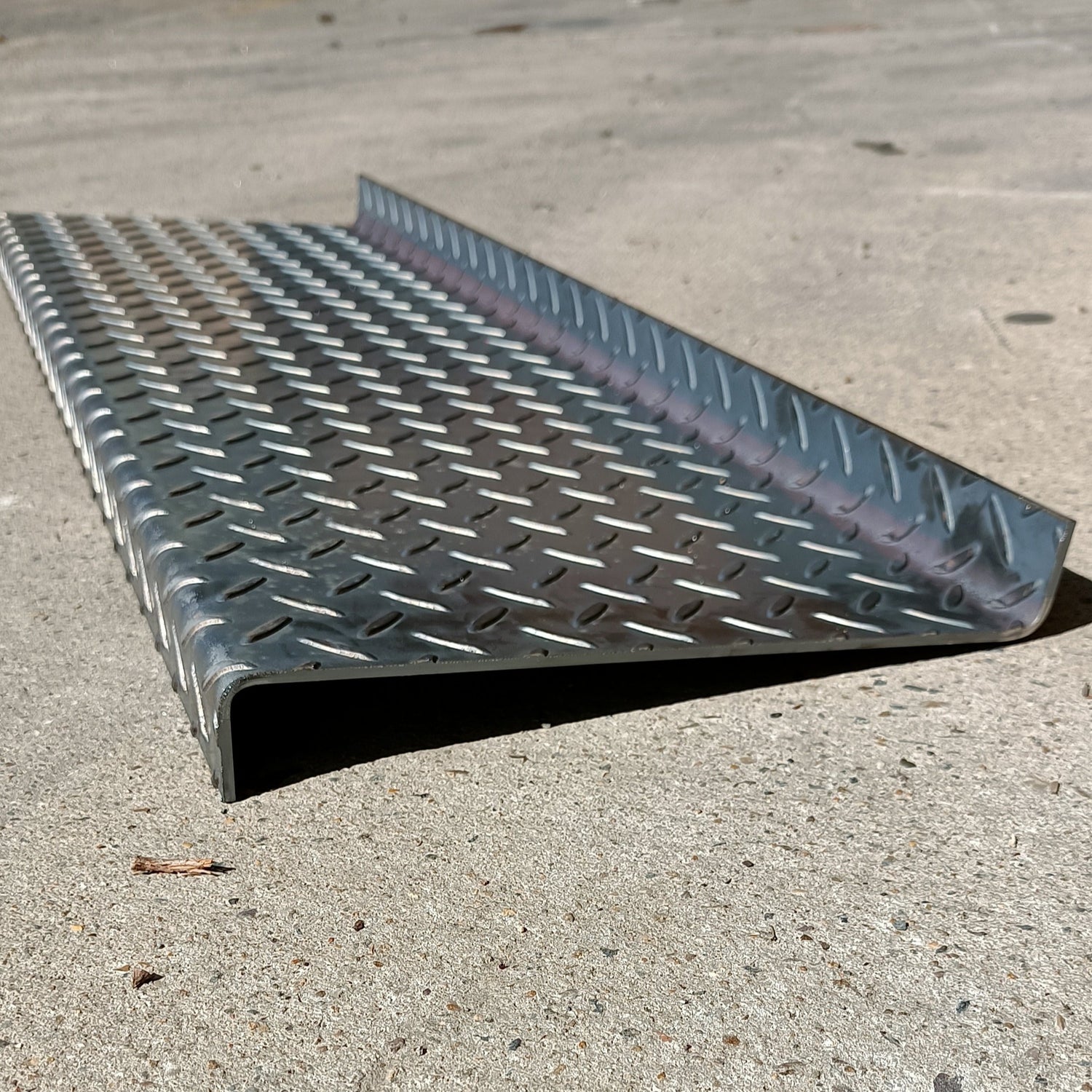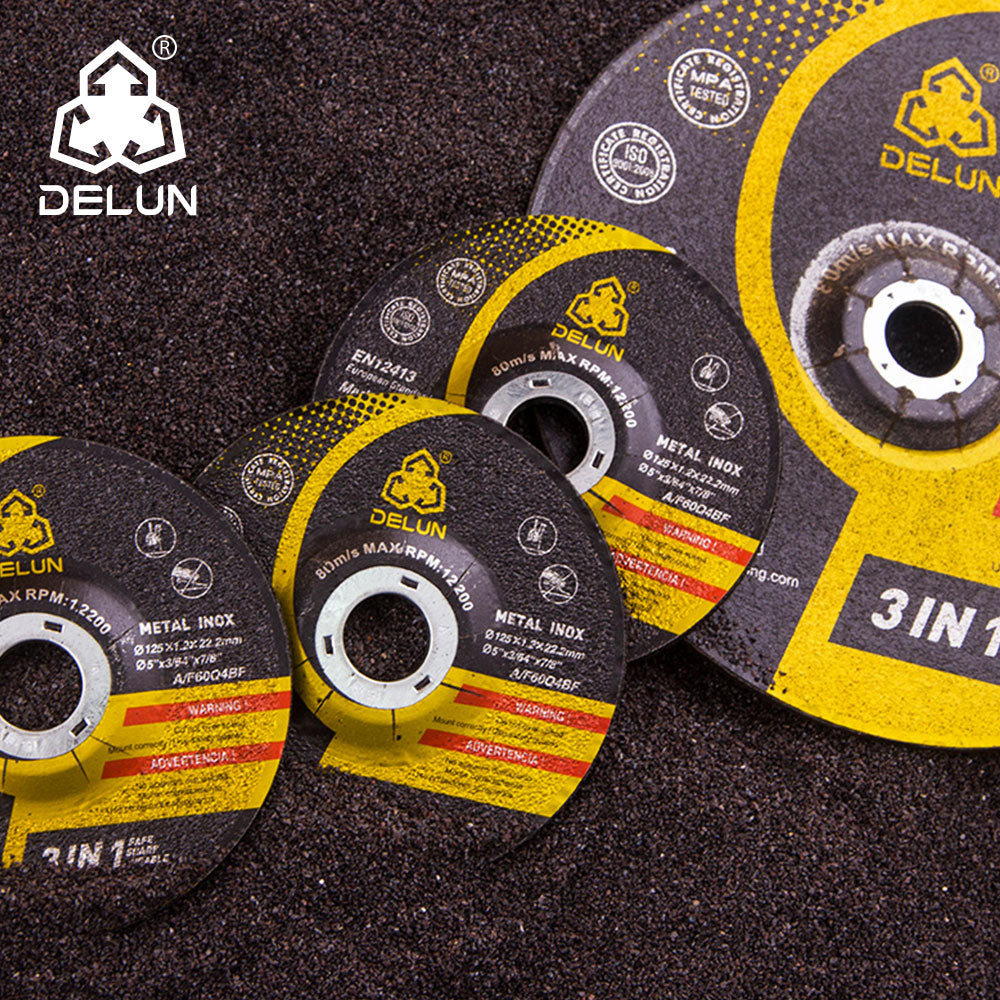How To Choose The Correct Product For Your Needs
Selecting The Appropriate Road Plate
Choosing the right road plate for your specific application is essential to ensure optimal performance and safety. Consider the following factors when selecting road plates from Ezy Steel:
Weight Capacity: Determine the maximum load that each road plate must support. We do not provide any loading data on our road plates, and it is the customer’s responsibility to ensure that the road plate being used is suitable for the job intended. We suggest consulting an appropriate professional, such as a structural engineer before using our road plates.
Environmental Conditions: Assess if the road plates will be exposed to moisture, chemicals, extreme temperatures, or other environmental factors. Apply a protective or anti-skid surface coating to plates where required for pedestrian or vehicle safety.
Installation and Mounting: Ensure there is adequate overlap; road plates should extend at least one foot beyond the pavement opening onto stable ground. Properly secure and feather the edges with asphalt for a smooth transition. Welding is recommended when multiple steel plates are used and positioned next to each other. Counter-sink plates when necessary to accommodate uneven roadways. Apply an anti-skid coating to the plates where required to enhance safety. Mark or paint the edges of the steel plates to improve visibility for drivers. Additionally, display appropriate advance warning signs, such as "Steel Plate Ahead" or "Bump," to alert approaching vehicles.
Maintenance: Continuous re-assessment of roadway and trench wall conditions throughout the day is required for safety. Conduct end-of-day inspections of structural integrity and fixings before leaving the job. Re-apply protective or anti-skid coatings as necessary.
Selecting the Right Castors
Choosing the right castor for your specific application is essential to ensure optimal functionality and safety. Consider the following aspects when selecting castors from Ezy Steel:
Weight Capacity: Identify the maximum load that each castor must support. Ensure the total capacity of all castors exceeds the overall weight to avoid overloading.
Surface Types: Determine whether the castors will be used on smooth floors, carpets, or uneven terrains. Select castors with suitable wheel materials and sizes for the intended surface.
Mobility Needs: Evaluate how frequently the castors will need to move and if maneuverability is a priority. Swivel castors offer enhanced maneuverability, while fixed castors provide stability in a single direction.
Environmental Conditions: Consider if the castors will be exposed to moisture, chemicals, extreme temperatures, or other environmental factors. Choose castors with materials and coatings that can endure these conditions.
Installation and Mounting: Confirm that the castors are compatible with the mounting style (plate, stem, threaded stem, etc.) and dimensions of your equipment or furniture.
Professional Advice: If you’re uncertain about which castors to select for your specific needs, consult with Ezy Steel or a qualified expert who can provide tailored recommendations.
By thoughtfully considering these factors and seeking professional guidance when needed, you can ensure that the castors purchased from Ezy Steel are appropriate for your intended application.
|
Legal Disclaimer: Ezy Steel provides castors, road plates, and related products for various applications. It is the responsibility of the customer to ensure that the selected castors or road plates are appropriate for their intended use. Castor load ratings are based on the assumption that the castors will be utilized on flat, even surfaces under normal operating conditions. It is essential not to exceed the specified load ratings or overload the castors beyond their intended capacity. Likewise, it is the customer’s responsibility to ensure that the road plate being used is suitable and can support the weight for the job intended. We suggest consulting an appropriate professional, such as a structural engineer before using our road plates. Customers should regularly inspect castors and road plates for signs of wear, damage, or other issues that may affect performance. For castors, following all manufacturer guidelines for installation, maintenance, and use is highly recommended. For road plates, regularly check the roadway and trench wall conditions for safety throughout the day and inspect road plate structural integrity at the end of the day before leaving the site. Ezy Steel will not be liable for any damages, losses, or injuries resulting from misuse, improper selection, or overloading of castors or road plates purchased from us. Customers are encouraged to consult with Ezy Steel or a qualified professional if they are uncertain about the right product for their specific needs. Product descriptions and specifications provided on the Ezy Steel website are intended for informational purposes only and may not always reflect the most current information. Ezy Steel reserves the right to make changes or improvements to products without prior notice. By purchasing castors or road plates from Ezy Steel, customers acknowledge and agree to these terms and conditions. |
-

Steel Road Plates
Steel Road Plates for Sale Our steel road plates offer strong, reliable...
-

Steel Sheet Supply
Steel Sheets for Sale Steel sheets can be cut to size and...
-

Steel Base Plates
Steel Base Plates for Sale Our steel base plates are durable and...
-

Stair Treads
Metal Stair Treads Our steel stair treads are strong, slip-resistant, and built...
-

DIY Welding Bench Tops & Accessories
Welding Table Top Supplied flat packed, all you need to do is...
-

Adjustable Levelling Feet
Adjustable levelling feet provide stability and flexibility, allowing you to easily customise...
-

Laser Consumables
A range of high-quality laser cutting nozzles and lenses designed for precision...










